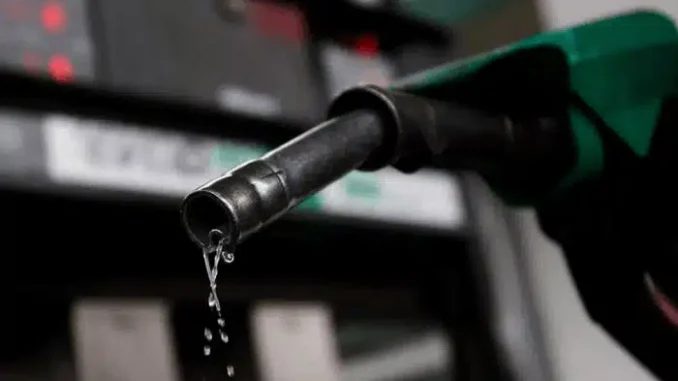
The cost of importing Premium Motor Spirit (PMS), commonly known as petrol, has seen a significant increase, with the landing cost now averaging ₦870 per litre, according to reports from the Major Energies Marketers Association of Nigeria (MEMAN).
Naija News understands that the increase comes at a time when the price offered by the Dangote Petroleum Refinery is creating tension in the market, impacting the margins of both fuel importers and marketers.
According to MEMAN, the landing cost of petrol stood at ₦872 per litre on April 28, and ₦868 as of April 29. Just days earlier, on April 23, the cost was ₦859 per litre, highlighting the rising costs of importing petrol.
This surge has raised concerns for importers, who now struggle to sell their products at a profit due to the pricing pressure.
On the retail front, petrol prices are varying widely across the country. On Thursday, Dangote sold petrol for ₦840, which was the same price offered by Matrix (Lagos) and Rainoil.
However, other marketers, such as Pinnacle, Mao, Sahara, AA Rano, and NIPCO, sold the fuel at higher prices, ranging from ₦889 to ₦842, depending on the location.
Retailers in Lagos are benefitting from lower prices, while those in the South-South are paying more due to logistics costs. For instance, First Fortune offered petrol for ₦868, while other retailers like Sigmund and Liquid Bulk set their prices at ₦870. Meanwhile, MRS in Ogun State is selling petrol at ₦890 per litre, with Heyden following closely at ₦885.
Speaking on the situation with Punch, the National President of the Petroleum Products Retail Outlet Owners Association of Nigeria (PETROAN), Billy Gillis-Harry, said that business has been slow due to the constant fluctuation of petrol prices.
“The fluctuation led to arbitrary price changes that are not well-managed,” he said.
Despite the hurdles, Gillis-Harry stressed that PETROAN members are determined to provide Nigerians with access to energy despite the difficulties.
The PETROAN president also acknowledged that the government is making efforts to stabilise the situation, and he remains hopeful that the challenges in the sector will eventually be addressed, benefiting both consumers and businesses in the long run.
One major factor contributing to the current situation is the pricing strategy of Dangote Petroleum Refinery. The refinery has been consistently slashing the prices of petrol since the Federal Government’s naira-for-crude deal with the facility commenced.
However, the reduction in prices by Dangote has had negative implications for fuel importers, forcing them to sell petrol at prices below their costs to avoid incurring too many losses.
After the suspension of the naira-for-crude deal in March, importers raised their prices from ₦860 to ₦950. Following the Federal Government’s directive to continue the deal, Dangote lowered petrol prices to below ₦900 per litre.
But, according to a report by S&P Global, the pricing of refined petroleum products at Dangote’s refinery has inadvertently incentivised fuel imports into Nigeria.
S&P Global noted that despite the global fall in crude oil prices, Dangote did not significantly lower its gantry prices, which led to increased imports into West Africa.
The report stated, “Between April 1 and April 9, the Eurobob M1 swap fell from $734.25 per metric tonne to $603/MT, a 17.9 per cent fall, before recovering somewhat. But over the same period, Dangote’s truck price at the gantry dropped just 1.7 per cent from ₦880/litre to ₦865/litre (and later ₦835).
“This has encouraged a flood of products to West Africa, where high domestic prices have led marketers to import from international traders in greater volumes



